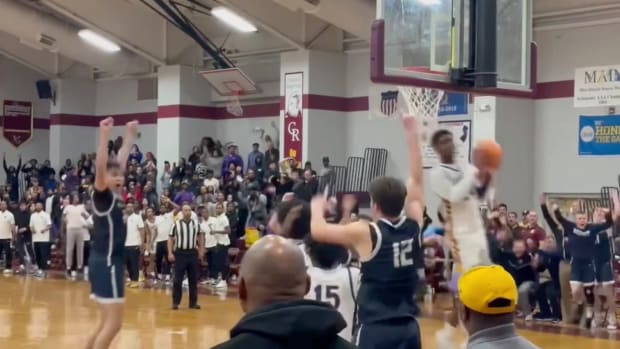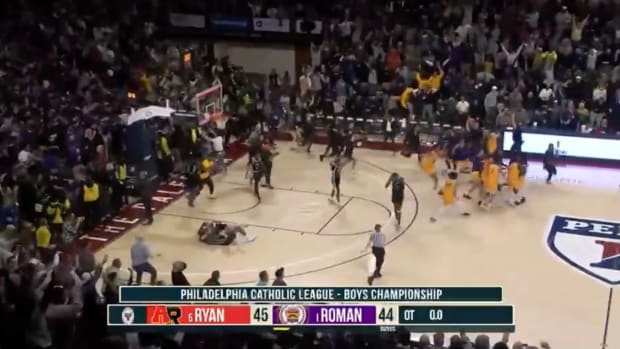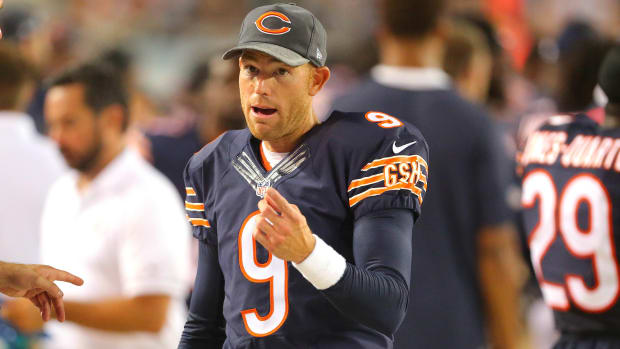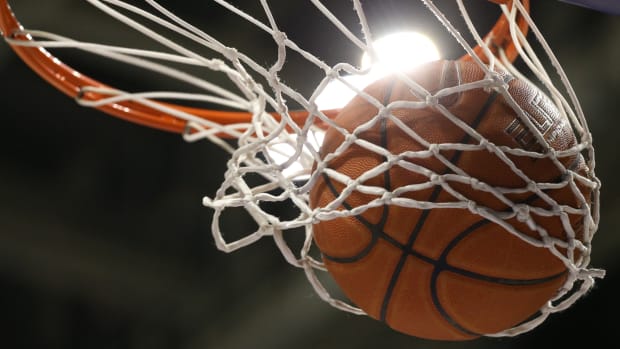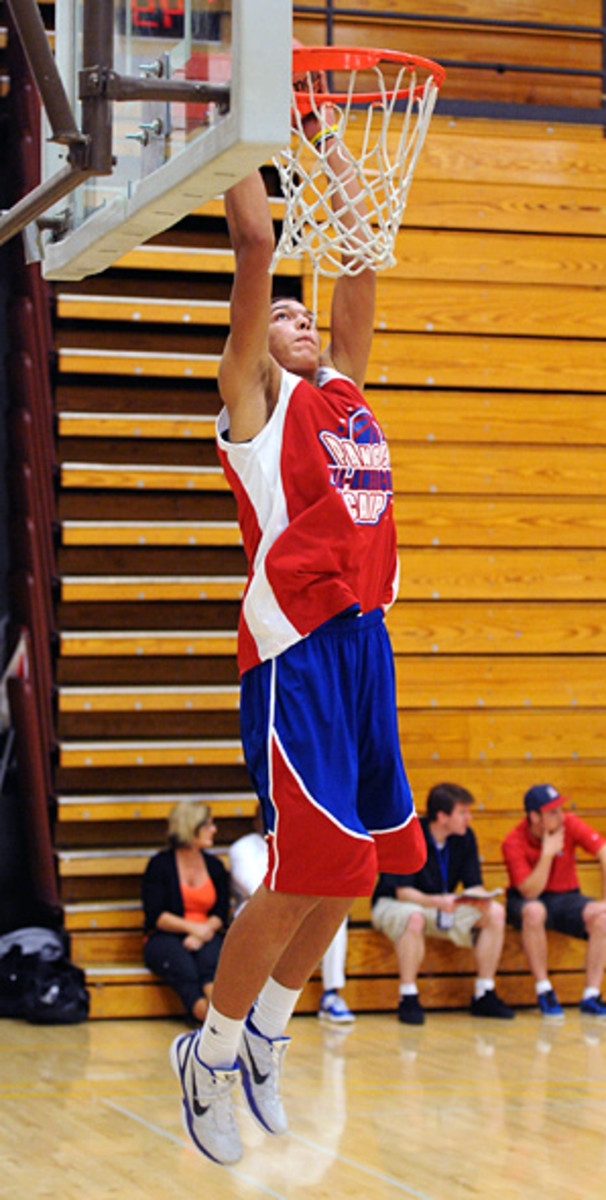
NCAA rule change could accelerate college hoops recruiting process
An NCAA rule change taking effect June 15 will allow men's college basketball coaches to make unlimited phone calls and send unlimited text messages to recruits who have just finished their sophomore years of high school. The change certainly benefits coaches, who now should have an easier time getting in touch with targets, but it could cause unrest among top-ranked recruits. If they thought they were being bombarded already, things are about to get much worse. They haven't experienced anything quite like what they're likely going to encounter.
"There will be hundreds -- maybe thousands -- of text messages and phone calls per day or week for some of these top-rated players," Rutgers head coach Mike Rice said. "That's life changing."
It's a change that many players may not be fully braced for.
San Jose (Calif.) Archbishop Mitty forward Aaron Gordon is the No. 4 prospect in the class of 2013. As the younger brother of former New Mexico forward Drew Gordon, he is no stranger to the world of recruiting. But he didn't know about the rule change until just a few days ago.
"I had no idea," Gordon admitted.
If Gordon was unaware of the upcoming change, it stands to reason that plenty of other touted recruits aren't clued in, either. And make no mistake: They're going be hounded once the regulation is made official in a few short weeks.
Under the current NCAA system, coaches can call a recruit just once per month from June 15 after his sophomore year to July 31 after his junior year, though the prospect is permitted to call coaches as often as he likes. Coaches can make two phone calls to a recruit per week starting Aug. 1 after his junior year. Text messages are strictly prohibited.
Starting June 15, that all drastically changes. There won't be any restrictions on calls or text messages to prospects completing their sophomore seasons. That could lead to chaos, particularly in the days immediately following the change.
"Some people may look at it like, 'I don't want to be the school that doesn't call him three times in a day,' '' Iowa assistant coach Andrew Francis said." Some schools may think it's a great idea to say, 'Well, we've got to get this guy on the phone at least three times a day and let him know we're thinking about him.' That's a bit much, in my opinion, but some kids may love it. But after a while, it wears on you."
The rule change may also have a very noteworthy byproduct: Frequent communication from coaches could cause some elite prospects to speed up their decisions. It's simple. The sooner players narrow their options, the less frequently they'll be hounded by coaches from dozens of Division-I programs.
"Kids are going to get sick of the recruiting process quicker now, to be honest with you, because of the constant [calls and texts]," said Rice. "We're going to be, you know, legally stalking some of these kids. It'll be interesting."
Although Rice is quick to question the scenario facing elite recruits, he actually favors the rule change. He believes the benefits outweigh the potential drawbacks.
For one, college coaches now can reach recruits directly without circumventing various back channels. Because coaches are currently limited to one call per month or two calls per week, they try to reach recruits via Facebook messages, which are currently permitted. They might also ask high school or AAU coaches to deliver messages for them.
"Now we don't have to go through any associates or any middlemen or any different coaches," Rice said.
Because coaches and prospects will communicate more often and freely, they also should become more familiar with each other during the recruiting process. In turn, that could help stunt one of college basketball's most troublesome trends: Recent reports have shown that approximately 40 percent of Division-I men's basketball players transfer before their junior seasons.
"Sometimes it's coaches not being happy with the player," Tennessee assistant Kent Williams said. "Sometimes the player's not happy with the university or the staff he's playing for. When you have a better feel for everything going into it, you can make a better decision on where you're going to school and we can make a better decision on whether this is the type of personality or kid we want in our program.''
There's no doubt this rule will cause a wave of change. But one aspect will remain the same: In the grand scheme of things, recruits call the shots.
"I tell my guys [that] you control the recruiting process, you're the one in charge,'' said Mouth of Wilson (Va.) Oak Hill Academy coach Steve Smith. "It's not the other way around. If you want to limit contact, tell them. If you want to limit their calls, fine. ... They're going to do whatever you tell them to do because they want you and you're one of their top recruits.''
Gordon plans to take that approach.
"The coaches who call me, I'll just let them know a person like myself doesn't need to be called and reminded of the benefits of a school," Gordon said. "I don't need to be reminded every single week.''
Even if the NCAA won't impose limits on phone calls or texts, nothing stops individual recruits from setting up their ground rules. At least for the short term, however, prospects may simply be tempted to silence their phones.
"They can pick and choose which [calls] to accept," said Henderson (Nev.) Findlay Prep coach Michael Peck. "With the others, they hit the ignore button. Or else they just shut their phone down. It becomes a little bit more annoying. They might change their numbers a little more frequently."
Eventually, coaches should get the hint.
"I think that it's going to be kind of crazy at first, but once things settle down a little bit, coaches will realize which kids are interested and which are not," Loyola (Md.) assistant G.G. Smith said. "If you text a kid or call a kid and he doesn't call you back after the fifth or sixth time, he's probably not interested, so you go to the next kid."
